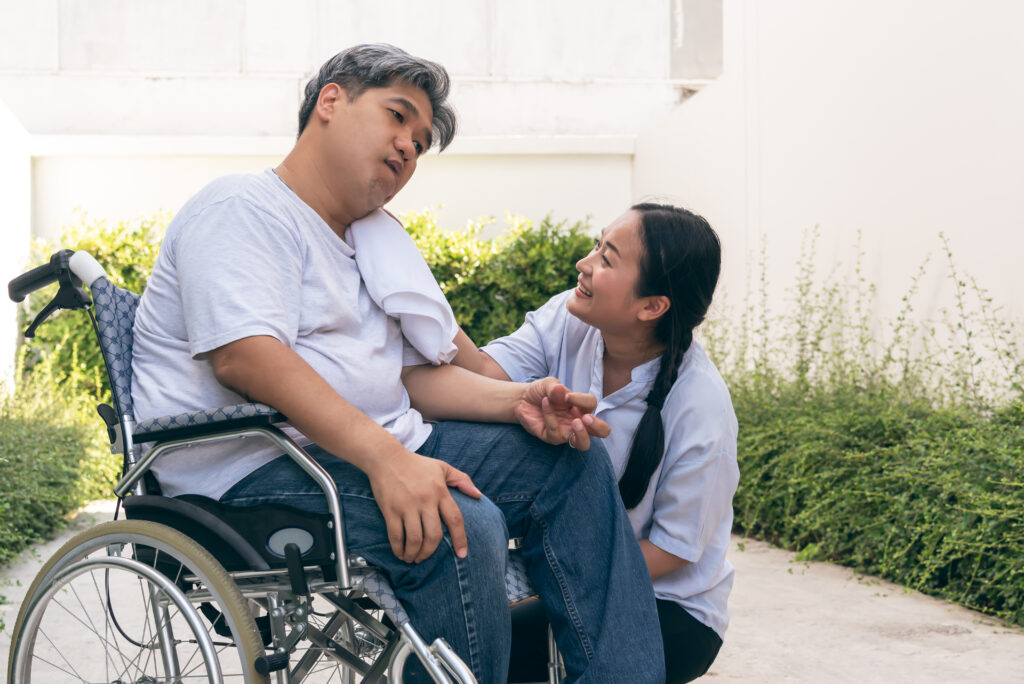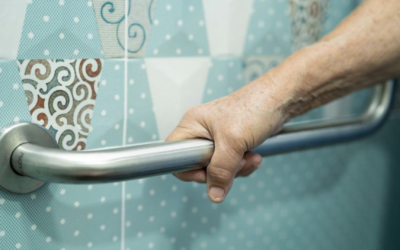Every year, millions of people around the world experience traumatic brain injuries (TBIs), altering their lives and often leaving lasting effects. These injuries can occur from various causes, including accidents, sports injuries, violence, or medical conditions. Despite their prevalence and impact, brain injuries remain widely misunderstood. It’s for this reason that March is now recognized globally as Brain Injury Awareness Month.
Brain Injury Awareness Month traces its roots back to the efforts of advocacy organizations and individuals committed to raising awareness about brain injuries. The observance began in the United States, where the Brain Injury Association of America (BIAA) designated March as National Brain Injury Awareness Month in 1989. Over time, this initiative gained recognition internationally, with countries around the world joining in to raise awareness about the impact of brain injuries and the importance of prevention, treatment, and support, and advocacy.
Understanding Brain Injuries

A woman is kneeling by her husband sitting on wheelchair, who is suffering from hemiplegia, which is paralysis to one side of the body.
Every 9 seconds, someone in the United States sustains a brain injury. A traumatic brain injury refers to any disruption in the normal function of the brain due to a bump, blow, or jolt to the head, or a penetrating head injury. These injuries range from mild concussions to severe traumatic brain damage, with symptoms varying depending on the extent and location of the injury.
Mild TBIs might result in temporary symptoms such as headache, confusion, dizziness, and memory problems. However, severe TBIs can lead to long-term physical, cognitive, emotional, and behavioral impairments, affecting an individual’s daily life, relationships, and ability to function.
Despite the prevalence of brain injuries, there are still misconceptions surrounding them. Many individuals fail to recognize the seriousness of even mild TBIs, often dismissing symptoms or failing to seek appropriate medical attention. This lack of awareness can exacerbate the consequences of brain injuries, leading to delayed treatment and prolonged recovery times.
A big challenge dealing with TBI is facing the stigma associated with brain injuries, particularly regarding invisible symptoms such as cognitive deficits or emotional disturbances. This stigma can prevent people from seeking support or accommodations, compounding their challenges and isolating them from necessary resources.
Spreading Awareness
Brain Injury Awareness Month in March provides a platform to educate the public about the causes, symptoms, and impacts of brain injuries. Through various initiatives, organizations, healthcare professionals, and advocates work to raise awareness and promote understanding and support for individuals affected by brain injuries.
Advocacy groups, such as BIAA, use Brain Injury Awareness Month as an opportunity to advocate for policy changes, increased funding for research and rehabilitation programs, and improved access to healthcare services for individuals with brain injuries. One important piece of legislation that is focused on this year is the 2024 Traumatic Brain Injury (TBI) Program Reauthorization Act.
The TBI Act, which allocates crucial funding for enhancing rehabilitation and community assistance for individuals with brain injuries, is scheduled to expire in 2024. Recognizing the urgent need for continued support, the BIAA collaborated closely with its partners and stakeholders to propose upgrades to the TBI Act. These proposed improvements aim to broaden program eligibility and formally acknowledge brain injury as a chronic condition, similar to diabetes and heart disease.

Congressman Bill Pascrell, Jr is seen here smiling, looking off camera. He has white hair, glasses, and is wearing a gray suit with a blue striped tie.
During a hearing held by the House Energy and Commerce Subcommittee on Health, Congressman Bill Pascrell, Jr. (D-NJ-09), who serves as the co-chairman of the Congressional Brain Injury Task Force, provided testimony on this bipartisan legislation, the Traumatic Brain Injury Program Reauthorization Act. His testimony urged the committee to act on these key points:
- Renew the Traumatic Brain Injury Act.
- Enhance funding for the TBI State Partnership Program, raising the authorization level from $7.3 million to $19 million for fiscal years 2025 to 2029.
- Officially recognize brain injury as a chronic condition at the federal level.
- Prioritize the clarification of service eligibility under the TBI Act, distinguishing between injuries caused by external forces and those from internal sources.
- Maintain authorization for the CDC TBI Programs and the National Concussion Surveillance System.
- Incorporate the Administration for Community Living Protection and Advocacy Program into any updated version of the TBI Act.
How You Can Make a Difference
If you would like to advocate for the renewal of the Traumatic Brain Injury Act, you can call or write to your members of Congress. BIAA is running a letter writing campaign specifically for this act, and encourages others to join the cause. You can find out more information about this campaign here.
As individuals, there are several ways to contribute to Brain Injury Awareness Month:
- Educate Yourself: Take the time to learn about brain injuries, their causes, symptoms, and potential impacts. By understanding these aspects, you can better recognize and respond to brain injury-related issues in your community.
- Spread Awareness: Share information about Brain Injury Awareness Month on social media platforms, participate in local events, and engage in conversations about brain injuries with friends, family, and colleagues. BIAA also runs a “Tell Your Story” campaign in order to raise awareness around what it is like to live with Brain Injury. You can learn more about this campaign here.
- Support Organizations: Support organizations dedicated to advocacy and support services, such as the Center for People With Disabilities. Volunteering your time or skills can also make a significant difference in raising awareness and supporting individuals affected by brain injuries.
- Be Empathetic and Practice Disability Etiquette: Show empathy and understanding towards individuals living with brain injuries and their caregivers. Simple acts of kindness and support can make a world of difference in their journey towards recovery and rehabilitation. You can learn more about Disability Etiquette by reading this previous article.
For local Colorado resources, and to find out more details about TBI and supportive services available, please visit this page from the Brain Injury Alliance of Colorado (BIAC).
Brain Injury Awareness Month in April serves as a crucial reminder of the prevalence and impact of traumatic brain injuries on individuals and communities worldwide. By raising awareness, dispelling myths, and fostering understanding and support, we can empower individuals affected by brain injuries and work towards creating a more inclusive and compassionate society for all. Let us use this month as an opportunity to come together, advocate for change, and make a positive difference in the lives of those living with brain injuries.





